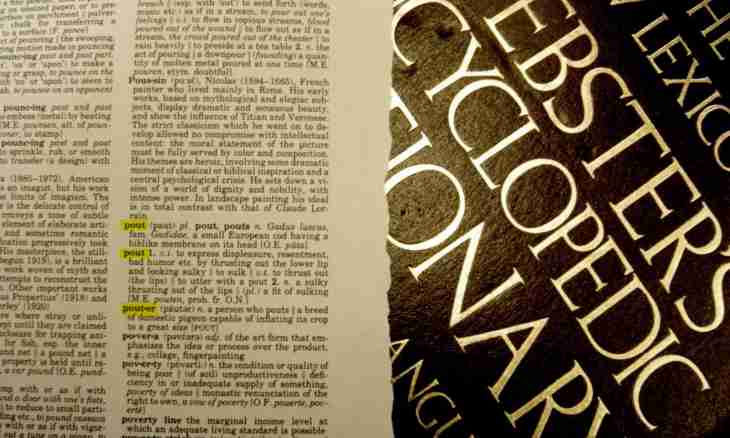Often Russian call one of the most difficult them - for rules, exceptions in them, dictionary words, etc. But if to show consideration for learning language, in a system, with establishment of cause and effect and associative communications, it is possible to notice how the attitude towards him will be changed.
Instruction
1. School students usually hardly acquire dictionary words. Happens that having remembered them as they are written in the textbook, the pupil cannot orient, having seen any given word in the text. Create necessary conditions that storing happened not mechanically, and is conscious that it was interesting to school student to learn words, difficult for it. And what understood will be fixed in memory forever.
2. Try to put mentally yourself to the place of the pupil of this age. Try to remember how your teacher carried out work on storing of dictionary words. Think, kind of you wanted that the teacher with you was engaged on this subject? Now analyze the structure of a lesson planned by you, methods which you apply, and bring something new. Your purpose is to interest children.
3. The first that should be made during the work with a new dictionary word – to write down it on a board, to put an accent, to read. Allocate with color or a font that letter or their combination which need to be remembered. Say at first you, then together with children.
4. Find out a word meaning if it is unfamiliar. Ask, maybe, someone from children heard it. Address the dictionary to find out all available values of this word. Surely give examples of the use of this word in phrases or offers.
5. Sort a word on structure. Often children write instead of one letter another as cannot understand to what morpheme it belongs. Therefore to a lesson find interesting information on origin of this dictionary word. For children of different age differently explain word etymology. Address the corresponding dictionary, try to turn the dry and boring information given in it, for example, in the fairy tale which will interest younger school students. The etymological analysis promotes that children will begin to understand relationships of cause and effect why it is dictionary, so, will remember its writing. Write down a word in notebooks or in special dictionaries.
6. For younger school age it is recommended to use as much as possible evident means therefore if it is possible, illustrate or find the drawing corresponding to the pledged difficult word. The child will have associations when he needs to write the offer with this word.
7. Now ask children to think up the offers where the new word meets. You can remember also earlier studied. Give a task to make the text of 3-4 offers on the set subject where words from the dictionary would meet. After a while ask pupils to read the received statements and to count who used most of all dictionary words.
8. Surely pay attention to all already studied words which meet during performance of tasks. Do not forget to repeat new material at the end of a lesson. As homework it is useful to give the creative work connected with a new word. Base on the interests of school students. If the child well draws, ask to illustrate a dictionary word. If the pupil writes fairy tales, let write a story, for example, about friendship of dictionary words, etc.

